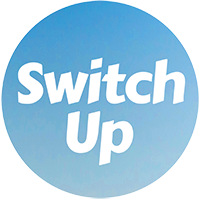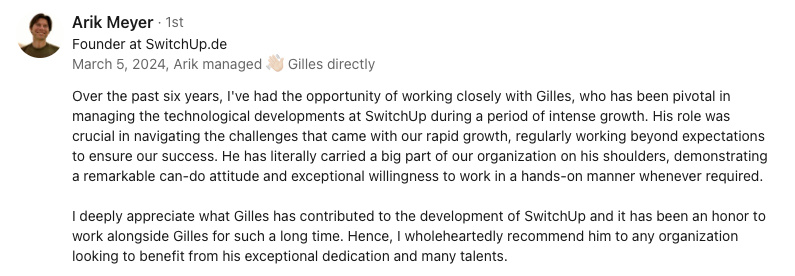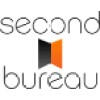The Role Of Blockchain In Supply Chain Management
Abstract:
Blockchain technology is transforming supply chain management by providing transparency, traceability, and security. It creates a decentralized ledger for recording transactions, enabling stakeholders to track goods and reduce the risk of fraud. Smart contracts automate and enforce agreements, streamlining processes and reducing disputes. Additionally, blockchain technology helps prevent counterfeit products by creating a secure record of product provenance. Overall, it offers the potential to optimize supply chain processes and build trust among stakeholders and consumers.
introduction to blockchain in supply chain management
Imagine trying to manage a global supply chain with decades-old technology—nightmare, right? Let me assure you, we’ve all been there. With the race toward digital transformation and efficiency, blockchain technology has burst onto the scene as the secret weapon industries never knew they needed. *Blockchain* is making waves precisely because it *revolutionizes* supply chain management by offering enhanced transparency and security. This isn't just high-tech hype; it's practical magic.
Throughout this piece, I'll explore how blockchain offers clear-cut benefits like increased traceability, reducing the probability of fraudulent activities, and optimizing complex processes. These core advantages mean that blockchain isn’t just a buzzword; it's a catalyst for real change. Whether it’s ensuring a loaf of bread's wheat is ethically sourced or preventing counterfeit pharmaceuticals, blockchain makes the supply chain not only smarter but also incredibly reliable. Trust me on this; it'll be a fun ride!
transparency and traceability
Let's get into the nitty-gritty of how blockchain achieves its magic—creating a decentralized ledger for recording transactions. Picture this: every time a product changes hands, from the manufacturer to the distributor, and eventually to the retailer, this information gets logged on an unchangeable blockchain ledger. No more wondering if data has been tampered with or lost in the shuffle. Everyone involved gets the same story, like an honest friend who won’t let you down.
Blockchain's decentralized nature means that no single party has control over the entire chain. Instead, multiple participants maintain copies of this ledger, ensuring it stays sync'd across the board. This offers *unparalleled transparency*—an almost mythical level of openness that wasn't possible with traditional systems. Each stakeholder can track goods as they move through the supply chain, verifying each step of the journey. It’s like having a GPS for your product but with every single detail laid out clearly.
examples from the field
Consider the food industry. With blockchain, you can scan a QR code on a packet of organic coffee and get a complete history—from the farm where the beans were grown, through the roastery, right down to the store shelf. This isn’t just showcasing fancy tech; it's about trust. Consumers can verify the product's origin, ensuring it aligns with ethical sourcing and compliance standards.
Look at pharmaceuticals: counterfeit drugs are a huge issue, both financially and in terms of safety. Using blockchain, companies can track each pill's journey from manufacturing to pharmacy, making it nearly impossible to introduce counterfeit products into the supply line. By logging each transaction on an immutable ledger, everyone along the chain can see where the product has been and confirm that it is genuine.
building trust among stakeholders and consumers
All this transparency is not just for show. It builds genuine trust among stakeholders—manufacturers, suppliers, retailers, and end consumers. When people know they can track the journey of their products at any point, confidence skyrockets. Stakeholders can see that compliance standards are met at every step, which is mission-critical in industries like food, pharmaceuticals, and high-end consumer goods.
And let’s face it, in a world riddled with scandals and fraud, transparency is the new black. Blockchain provides a level of trustworthiness that traditional systems simply can’t match. This leads to improved relationships among all parties involved and a more efficient, reliable supply chain.
So, who knew? Something as dry and complex as a decentralized ledger could be the hero we didn't know we needed, bringing transparency and trust back into the limelight. And yes, it’s just as cool as it sounds.
smart contracts and process automation
Let’s navigate into the dynamic world of smart contracts and how they're shaking up supply chain management. Imagine contracts that could execute themselves. No, it's not science fiction—it's blockchain's *secret sauce* for supply chains. Smart contracts are pre-programmed with the terms and conditions between parties. Once set, they automatically execute actions based on agreed-upon triggers, without human intervention. Pretty neat, right?
The genius of smart contracts lies in their ability to ensure that transactions go off without a hitch. When a condition is met, the contract enforces itself. For instance, payment could be automatically released when goods reach their destination. No need for endless emails or waiting on signatures. This automation slices through administrative tasks, drastically reducing human error and speeding up transactions.
benefits of process automation
What good is a fancy new tech if it doesn't make life easier? With smart contracts, automation becomes the norm rather than the exception. Here are some key benefits:
- Minimized disputes: Terms are clear-cut and embedded into the contract, leaving no room for “he said, she said”. Fewer disputes mean smoother operations.
- Increased speed: Automated steps eliminate bottlenecks, making processes swift and efficient. Imagine handling a week's worth of actions in hours!
- Immutable records: Once recorded on the blockchain, the data is unchangeable. This permanence builds trust among stakeholders.
real-world applications
Take the automotive industry, for example. Smart contracts can automatically order more components when the inventory level dips below a certain point. As a component is scanned upon arrival, the contract verifies receipt and releases payment instantly. This keeps the assembly lines humming without interruptions.
In the world of international trade, smart contracts are a game-changer for letters of credit. Traditional methods are time-consuming and fraught with delays. Enter blockchain: the terms coded into a smart contract activate once the stipulated requirements are met. Faster, more reliable, and a whole lot less paperwork.
And let’s not forget the ever-important food supply chain. Smart contracts can enforce compliance checks at various stages—ensuring food safety standards are met from farm to fork. Imagine a contract that automatically flags and halts a shipment if the temperature condition isn't maintained during transport. Talk about peace of mind!
In essence, smart contracts and their process automation capabilities turn the supply chain into a well-oiled machine—efficient, reliable, and freed from the shackles of cumbersome manual processes. So, if you've ever wished for your paperwork to handle itself, blockchain has an app for that.
combating counterfeit goods and optimizing processes
Who hasn’t worried about the authenticity of a product at some point? Whether it's high-end luxury items or essential medications, counterfeit products are a billion-dollar headache. Here's the good news: blockchain comes to the rescue by offering an ironclad way to verify product authenticity. By creating an immutable record of a product’s journey, from manufacture to final sale, blockchain technology significantly curtails opportunities for introducing fake goods into the supply chain. It's like having a tamper-proof digital diary for each item.
Imagine trying to substitute a counterfeit with all that hyper-specific data logged securely on the blockchain. Practically impossible, right? By ensuring that every single transaction is recorded and verified, blockchain provides a bulletproof method to detect and eliminate fakes. This secure record of provenance is more than just a technological marvel; it's an antidote to a thriving counterfeit market. And let's face it, earning and maintaining consumer trust isn’t just good business; it's essential for long-term success.
importance in maintaining product integrity
In industries like pharmaceuticals, food, and luxury goods, integrity isn’t just a buzzword—it's life or death. Customers need to know that what they’re buying is the real deal. Blockchain elevates this trust to new levels by creating a transparent, tamper-resistant record of each product’s lifecycle. This not only combats counterfeiting but also reinforces the brand’s commitment to quality and reliability. Transparency, it's the gift that keeps on giving.
overall potential for optimization
But wait, there’s more! Beyond just fighting fakes, blockchain offers tremendous potential for optimizing supply chain processes. It paves the way for significant cost reductions and improves delivery times. Here’s why:
- Enhanced coordination: By providing a single, verifiable source of truth, blockchain helps different parties in the supply chain coordinate more effectively, reducing misunderstandings and bottlenecks.
- Reduced paperwork: Immutable digital records render traditional paperwork obsolete, slashing administrative costs and time.
- Real-time tracking: More precise tracking capabilities shorten delivery times and optimize inventory management.
looking ahead
In essence, blockchain has all the ingredients to keep transforming supply chains into models of efficiency and reliability. As the technology continues to evolve, its potential for further innovation and improvement seems limitless. Tackling counterfeits and optimizing processes? Just another day in the blockchain's life. Here’s to a future where every transaction is transparent, secure, and fast. Cheers to that!
You might be interested by these articles:
- Redefining Care: Datafication's Impact in Healthcare
- Enhancing Data Privacy with Federated Learning
- The AI Woke Police vs. The Irony Brigade: Can Robots Understand Sarcasm?
- Laughing with AI: Navigating the Ethical Maze of Artificial Humor in Branding
- The Symphony of Creativity in an AI-Powered World
See also:
- Gilles Crofils: Skills, Industries and Markets
- VR Therapy for PTSD
- Elevating Data Analysis with R
- Conquering EU Regulations: A Startup's Guide to Success in Agricultural Robotics
- Boosting MVP Success with Edge Computing
- European Startups Redefining Innovation with Brain-Computer Interfaces
- Decentralized Energy Storage: Transforming Power Management for a Sustainable Future





